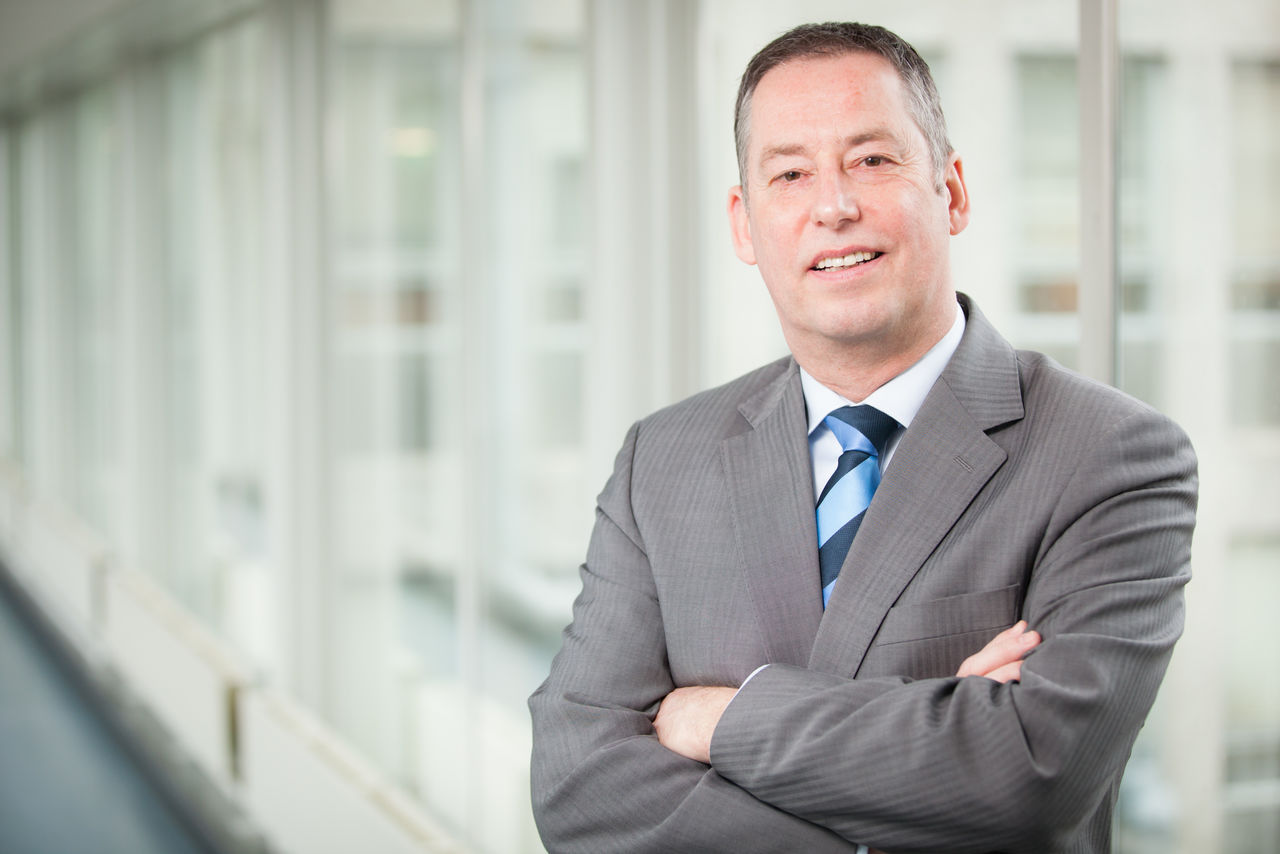With the X!Delft consortium TU Delft intends to intensify collaboration with companies. Executive Board Chairman Tim van der Hagen speaks of a new era.
Tim van der Hagen: "Efforts to progress science are done collaboratively." (Photo: TU Delft)
According to Van der Hagen, today’s world is demanding a new form of collaboration, one that is more exploratory, centred on the long term and more profound. More companies will move to TU Delft campus and will merge with research departments. Or, as the Chairman says, “The boundaries between companies and research departments will blur. This is already the case at QUTech which houses people from TNO, TU Delft, Microsoft and Intel. Who works for who is not visible from their high visibility vests. Efforts to progress science are done collaboratively.”
X!Delft was founded to get more of this type of collaboration off the ground. Actually, this was already done one-and-a-half years ago even though the official opening was yesterday. In the meantime, eight companies have signed up including Heineken, VolkerWessels and the NS. They pay an annual contribution of EUR 150,000 as a sort of membership fee from which large scale collaboration will emerge. Van der Hagen explains that “For that money, the companies buy access to the major developments that we are working on and can talk to researchers.”
Van der Hagen does not talk about collaboration, but about an ecosystem. The idea came in part from the Chemelot campus in Limburg which is a joint initiative of the University of Maastricht, the province of Limburg and DSM. “We visited the campus and saw a very dynamic system in which different types of companies were working together.”
When will we see anything concrete from X!Delft?
“I believe that things can move very fast. We will soon see new companies setting up on campus. Just look at the technology company ABB which is now building on campus.”
An interview in the financial newspaper FD with you said that a new building will be built on campus where up to 2,000 researchers from TU Delft and industry will work together.
“What I wanted to say was that all sorts of entities come together. That there is interaction. And you need a building for this, possibly with catering facilities. We do not have definite plans at this stage, but it won’t be long now.”
You say that we are entering a new era. This is quite a statement.
“It is a logical next step. And we are not suddenly starting from zero. We have been working with industry for a long time now and we are entering a new phase. That is more than clear.”
In what way?
“Twenty-five years ago we worked on commissions by companies. We tried to create space within those jobs to do our own research. Fifteen years ago we jointly carried out projects. And what you now see is that collaboration is directed much more on the long term. The innovation chain has changed. Before, we researched new technologies and only when we understood them did we call companies in. Now industry wants to think through everything with us right from the start. Take quantum technology again. We are examining materials that we only just learned to produce. And we are doing this together with industry. It is a completely different model.”
Does this close collaboration not lead to a conflict of interests? Researchers want to publish while companies want to keep competition-sensitive information to themselves.
“Any collaboration can only be successful if we make very clear agreements up front. We want to train engineers, progress science and, thus, publish. That must be possible. We need to work with each other in complete openness. Further, just think, we are not talking about short-term jobs, but about the big issues of society – the future of mobility, the role of artificial intelligence and robotics. It is easier to make good agreements in this type of work. We have become quite good at that.”
You say that it is not always clear to see who works for the company and who works for TU Delft in collaborative projects. But isn’t there still a role division? Aren’t scientists always more involved in fundamental research?
“Yes, generally speaking that’s true. That said, you now see that researchers work both on the basics of science while working on the ultimate applications. But of course, everyone works within their own responsibilities.”
Do you have a question or comment about this article?
tomas.vandijk@tudelft.nl


Comments are closed.